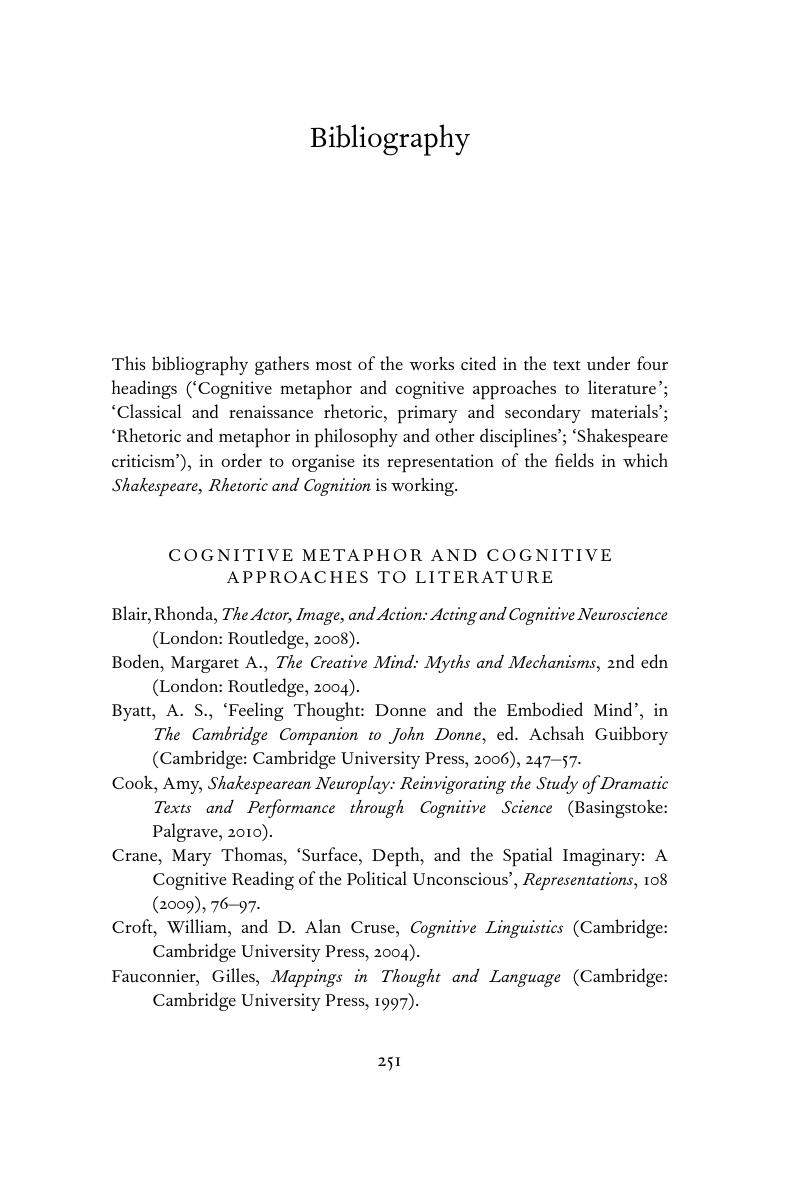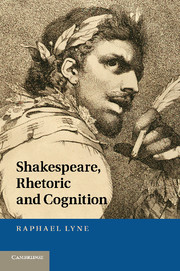Book contents
- Frontmatter
- Contents
- Acknowledgments
- Chapter 1 Introduction: ‘pity, like a naked new-born babe’
- Chapter 2 Metaphor and synecdoche in cognition
- Chapter 3 The drift towards cognition in rhetorical manuals
- Chapter 4 A Midsummer Night’s Dream
- Chapter 5 Cymbeline
- Chapter 6 Othello
- Chapter 7 The Sonnets
- Conclusion
- Notes
- Bibliography
- Index
- References
Bibliography
Published online by Cambridge University Press: 07 September 2011
- Frontmatter
- Contents
- Acknowledgments
- Chapter 1 Introduction: ‘pity, like a naked new-born babe’
- Chapter 2 Metaphor and synecdoche in cognition
- Chapter 3 The drift towards cognition in rhetorical manuals
- Chapter 4 A Midsummer Night’s Dream
- Chapter 5 Cymbeline
- Chapter 6 Othello
- Chapter 7 The Sonnets
- Conclusion
- Notes
- Bibliography
- Index
- References
Summary

- Type
- Chapter
- Information
- Shakespeare, Rhetoric and Cognition , pp. 251 - 263Publisher: Cambridge University PressPrint publication year: 2011



